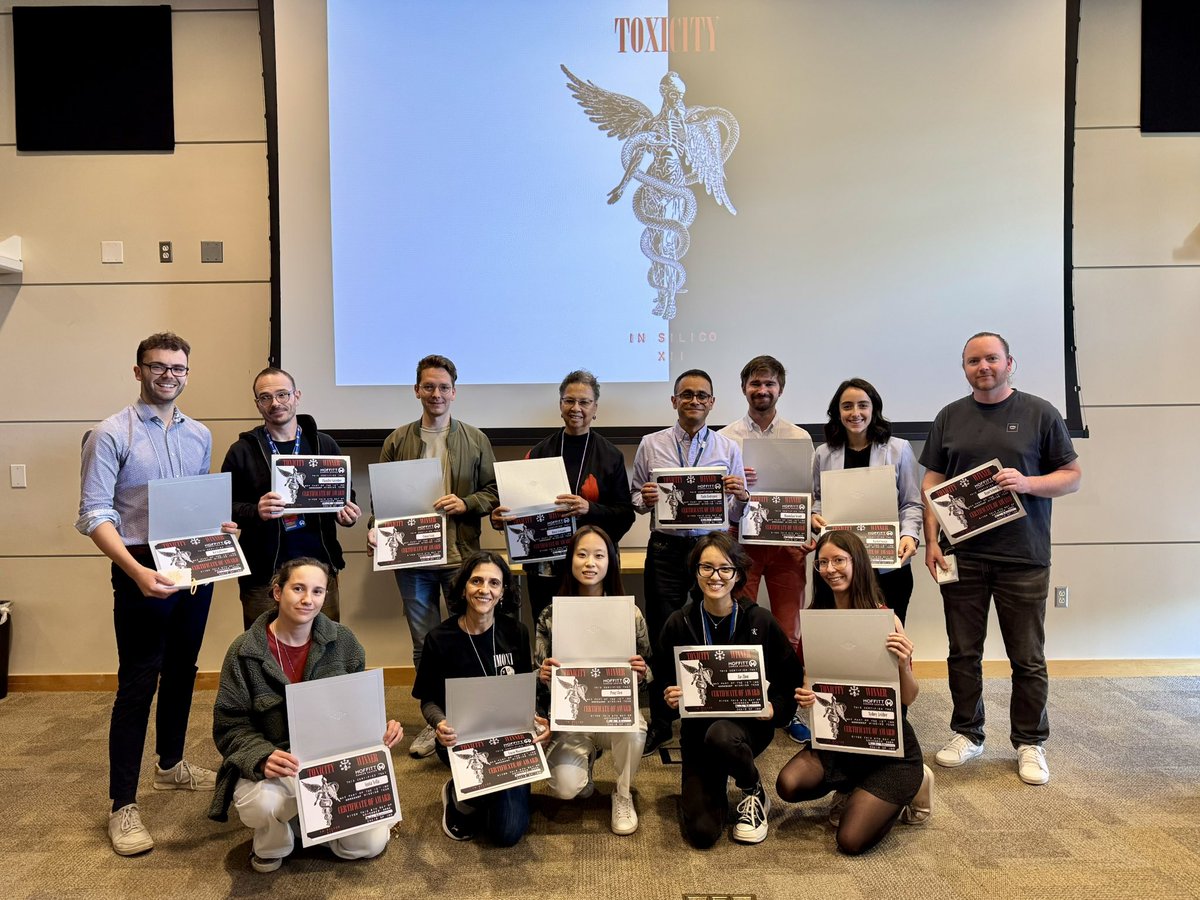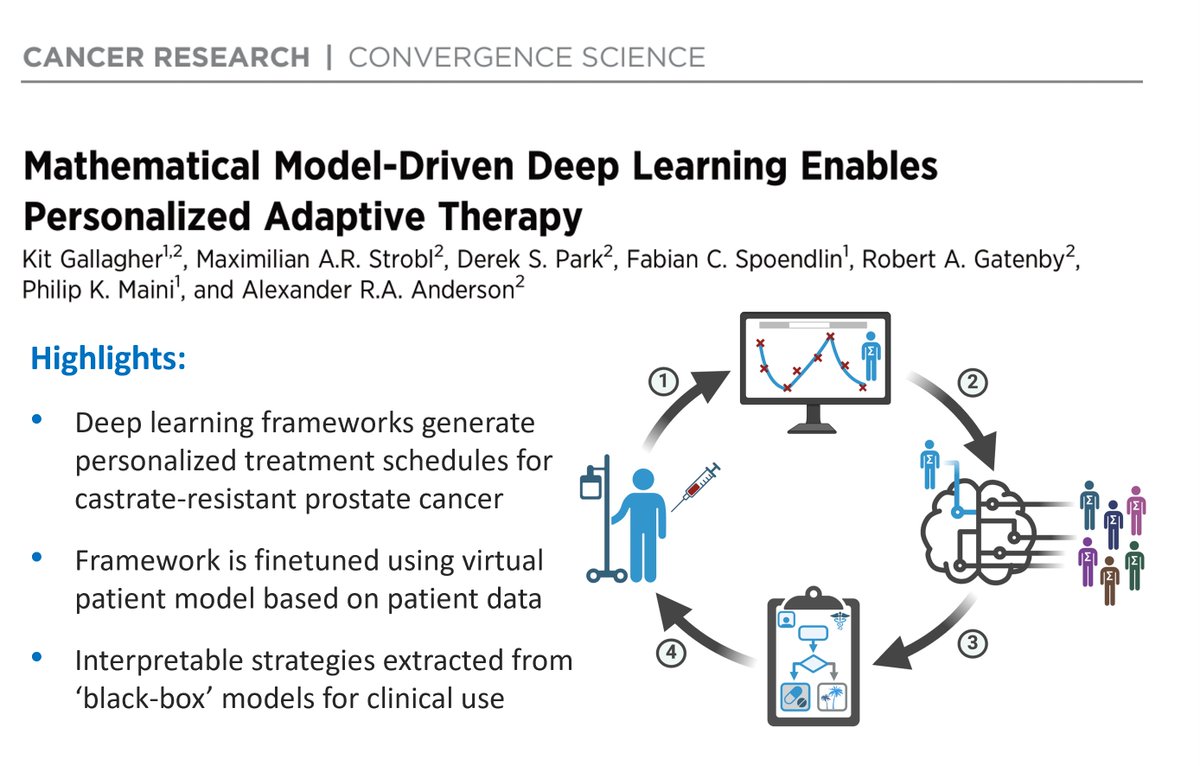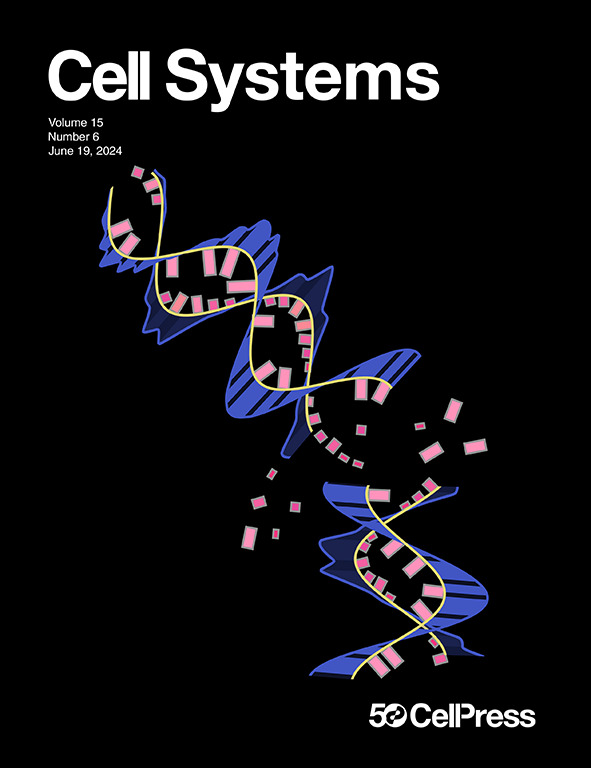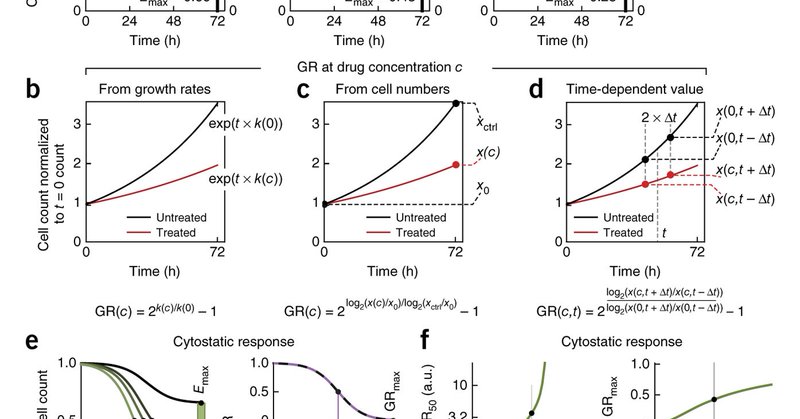
Maximilian Strobl
@StroblMAR
Followers
805
Following
3K
Media
90
Statuses
427
Postdoc in the Theory Division at the Cleveland Clinic, USA. Interested in using ecology, evolution and mathematics to improve cancer treatment scheduling.
Cleveland Clinic, OH
Joined November 2016
Could adaptive therapy improve PARPi maintenance for ovarian cancer?.I’m very happy and proud to share our new paper, now out in Cell Systems:.A tweetorial [1/12]
2
17
50
RT @ara_anderson: Save the date #MathOnco25! October 29th-31st in Tampa, Florida. Directly before the 13th @imoworkshop (November 3rd-7th)….
0
31
0
Attention #MathOnco friends! We'd like to put together a collage of pictures of the mathonco presence at #AACR25 for the @mathoncoblog newsletter. DM me yours by Monday (05/05) if you'd like to see yours included.
0
1
3
RT @AguadeGuim: Metastatic disease accounts for the majority of cancer-related deaths. Tumors and their metastases form a complex network o….
0
33
0
Very proud of this team snatching up 1st place & $50k pilot funding towards beating HR+ #ovariancancer at @imoworkshop. It was my 1st time as team lead and more than anything it was simply a lot of fun! Thanks #TeamRuby for an incredible week! Looking forward to what's next!.
The winners of the 12th @imoworkshop on Toxicity are #TeamRed! Led by the synergistic combination of @ErinGeorgeMD @StroblMAR & Paulo Rodriguez. Congratulations on a unanimous win!! Excited to see where this project goes with the $50K winning prize from @MoffittNews #MoffittIMO
3
0
24
Thanks for the shoutout! I fully agree. Models help us to better design and interpret our experiments and conversely experiments enable us to calibrate and advance our models. In short: Integration drives iteration drives progress!.
@NCIsysbio #SysBio4CancerResearch: The best way to bring preclinical data to bear on clinical translation is the integration of mathematical models to interpolate or extrapolate these data, and to test & generate hypotheses about underlying biological mechanisms. A recent great example of
0
1
10
RT @mathoncbro: @NCIsysbio #SysBio4CancerResearch: The best way to bring preclinical data to bear on clinical translation is the integratio….
0
3
0
RT @JeffMaltas: Our recent @PRX_Life paper was selected as the very first journal cover and it looks great :). Past thread explaining why w….
0
7
0
RT @SMB_MathBiology: SMB Math ONCO talks with Ray Zhang(@ucimath) and Maxi Strobl(@ClevelandClinic): Investigating glioblastoma with physic….
0
2
0
RT @jillagal: .@StroblMAR combines preclinical experiments and mathematical models to better understand dynamics of resistant and sensitive….
0
4
0
RT @ara_anderson: First presentation from #AndersonLab @PhilipMaini student at #SMB2024 by @SciKit_G presenting new work on, Personalizing….
0
5
0
RT @SciKit_G: Here we see some patients benefit from adaptive therapy more than others, but can we predict which patients will benefit (and….
0
4
0
RT @AlvaroKohn: Is our #mathonco modeling clinically relevant? Check our brand new paper @CCR_AACR describing a mathematical model that pre….
aacrjournals.org
AbstractPurpose:. Development of a computational biomarker to predict, prior to treatment, the response to CDK4/6 inhibition (CDK4/6i) in combination with endocrine therapy in patients with breast...
0
7
0
How can we use AI 🧠 to inform treatment scheduling - where data are limited and we need an understanding of *why* we’re proposing a specific strategy? The answer: integration with mechanistic mathematical models!.Excited to share our new paper now out in @CR_AACR!.
Could we use deep learning to personalize cancer treatment schedules? We explore this in castrate-resistant prostate cancer, in a new paper out in Cancer Research @CR_AACR: A tweetorial (or should I now say an eXposition?) [1/11]
0
5
19
RT @ara_anderson: We are on the cover of @CellSystemsCP! Cool collaborative paper led by the brilliant @StroblMAR with.@mehdiDamaghi @Phili….
0
15
0
@SciKit_G To learn more about the paper, check out our tweetorial:
Could adaptive therapy improve PARPi maintenance for ovarian cancer?.I’m very happy and proud to share our new paper, now out in Cell Systems:.A tweetorial [1/12]
0
0
2
The bars (nuclear bases) are artistic liberty, although @SciKit_G tried hard to make these real too, reviving our old "curvogram" code: Reminded me of how cool an idea they were - we will find a way to use them for a "real science" fig some day!.
Have you ever wanted to visualize a histogram or density from counts of (x,y) pairs? This is esp. useful given a f(x) that you want to visualize both the inputs, outputs, and density. I had such a data viz problem and discussed with @mathoncbro what it would take to do. 1/
1
0
1
Chuffed to see our artwork make the @CellSystemsCP cover! Really fun collab with @SciKit_G, @ara_anderson,@mathoncbro,@jillagal and @markrt_. The strands are model sims (height=tumor size; shading=drug dose; s1=modulation; s2=skipping), arranged as a PARPi-inflicted DNA break.
Our June issue is online! On the cover: Illustration showing simulations of tumor growth arranged as the two strands of a DNA helix, shattered by the emblematic double strand break induced by PARP inhibitors
1
4
15
and to the topic of time-dependence - I fully agree! a seemingly trivial question, but I think *how* we measure drug-sensitivity (and thus resistance) also matters. That makes me think of this one:.
nature.com
Nature Methods - Growth inhibition metrics allow for robust measurement of drug efficacy independent of variables such as cell growth rate, seeding density, and growth medium; they are a practical...
0
0
2















